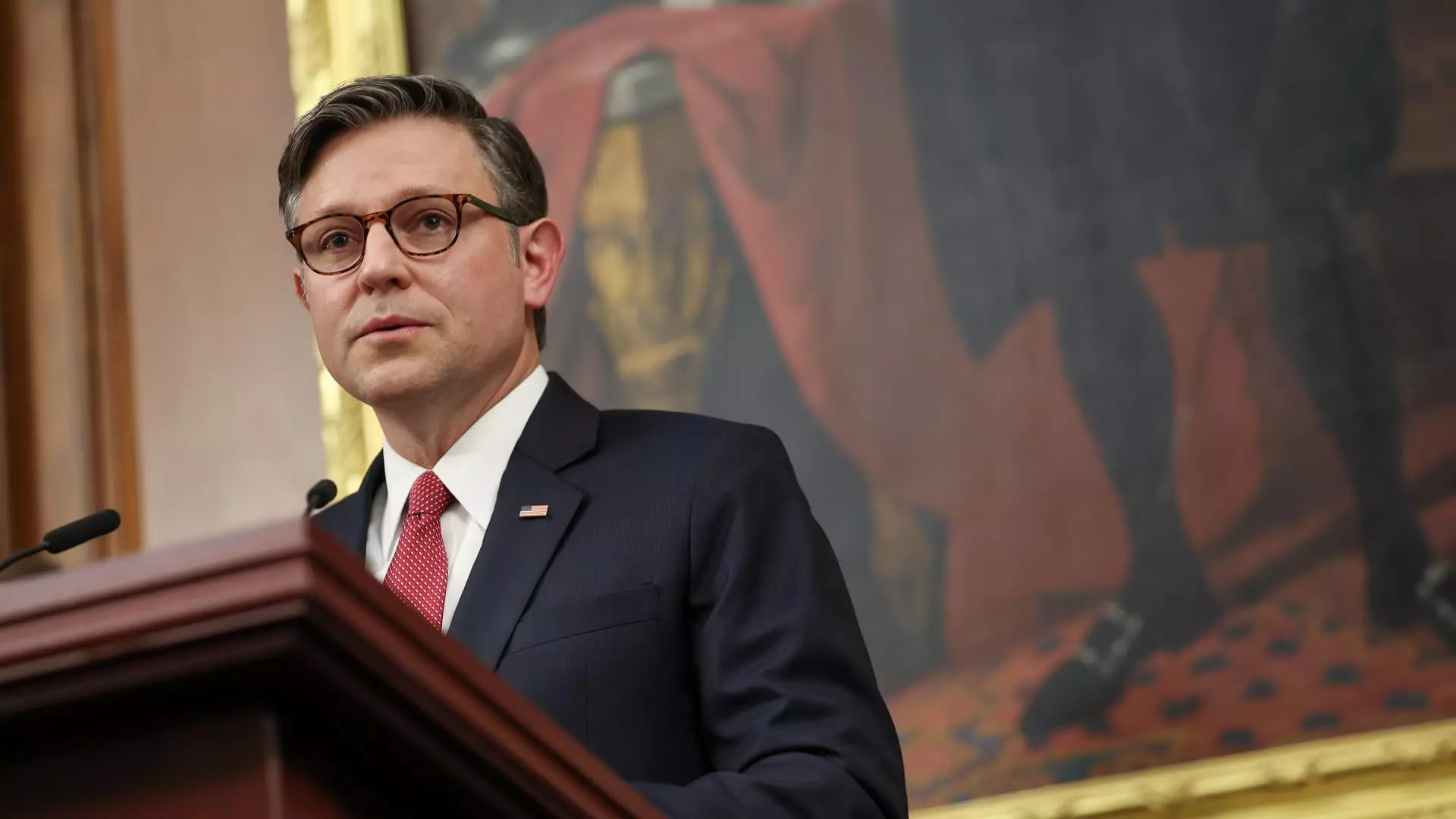In a striking display of political theatre, House Speaker Mike Johnson from Louisiana has unleashed a controversial interpretation of the War Powers Act, asserting it is, in his view, a relic of the past that shackles presidential authority. This Nixon-era legislation, which was designed as a response to the Vietnam War, now finds itself under scrutiny as Johnson claims that the actions taken by former President Donald Trump against Iranian nuclear targets fall squarely within the powers granted by Article II of the U.S. Constitution. Johnson’s assertion raises significant concerns about the balance of power between Congress and the presidency—an issue that has been increasingly blurred in recent decades.
The War Powers Resolution—though equally disrespected and ignored—was meant to serve as a check on executive power; yet here we stand, confronted by a Speaker who champions unilateral military action. Many constitutional scholars echo the sentiments of Johnson, arguing that this law infringes upon the executive’s prerogatives. But when do we assert that the Constitution itself gives way to political expediency? The framers of the Constitution intended for Congress to possess the “power to declare war,” yet that power has gone dormant since World War II. This dormant authority laid bare raises critical questions about the scope of presidential power in a modern context where global conflicts routinely emerge.
Separation of Powers: Where Are We Now?
This nuanced tug-of-war over war powers reflects a persistent issue in American governance. The Constitution delineates roles, yet for decades, it has witnessed a steady encroachment of presidential authority, effectively sidelining Congressional oversight and accountability. Previous presidents, like Barack Obama and George W. Bush, have claimed their right to act militarily without formal declarations of war, perpetuating a troubling precedent where military engagements unfold devoid of legislative consent.
Johnson’s defiance of the War Powers Resolution is both alarming and anticipatory; we are at a critical juncture in American history where the urgency and gravity of conflicts can lead to unchecked military actions that the American public has neither debated nor sanctioned. Consider the bipartisan efforts led by Representative Thomas Massie and his Democratic counterpart, Ro Khanna, aimed at prohibiting unauthorized military actions in Iran. This budding coalition, though under duress from leadership, illustrates that some lawmakers recognize the peril of allowing the president a blank check for military endeavors.
The Scorn of Political Fallout
The political atmosphere further thickens with the personal vendettas at play. Trump’s derisive remarks towards Massie, calling him a “Third Rate Congressman” and a “LOSER,” sharpen the focus on the interplay of authority, loyalty, and ideological purity within the Republican Party. This feud between the Executive and legislative branches underscores the deeper ideological shifts affecting governance today. As Massie mulls the viability of his resolution in light of a potential ceasefire, the underlying message is discontent—a frustration over how quickly the precepts of democracy can be compromised for short-term political gain.
The relationship between Congress and the presidency shouldn’t devolve into childish theatrics, nor should it hinge on the whims of an individual character but rather be rooted in procedural integrity and accountability to the American people. A single unilateral action can have repercussions that resound globally. The imposition of presidential militarism amidst a rising tide of nationalism raises red flags. Such unchecked actions dismiss the voices of citizens who should be engaged in discussions over peace, conflict, and foreign policy.
The Role of Citizens in Democratic Engagement
Amid these power struggles, we must interrogate our role as citizens. Are we content to watch as the war drums beat louder, separated from the fervor of Congressional debate? If the political elites act with impunity regarding war powers, the responsibility lies with the electorate to demand accountability and transparency from their representatives. The fight against unilateral military action may, ultimately, reside not with Congress alone but with the populace whose lives and futures are at stake.
As we witness Speaker Johnson’s powerful but potentially perilous stance regarding military intervention, the chilling implications of a dwindling legislative role should spur a broader dialogue. It presents a stark reminder that our democracy relies on more than just the optics of power; it demands participation and an unwavering commitment to the principles that protect it from becoming tyrannical. In this dangerous game of authority, the legitimacy of our republic hangs in the balance, and every voice matters.

